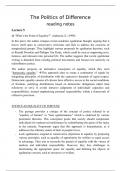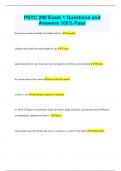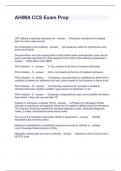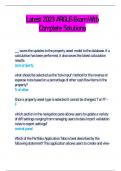Samenvatting
Summary Politics of Difference MC quiz 2 reading notes
The document provides a summary of the required readings for the course Politics of Difference covering from the fifth to the eighth lecture. Therefore, it covers the content of the second MC quiz.
[Meer zien]













